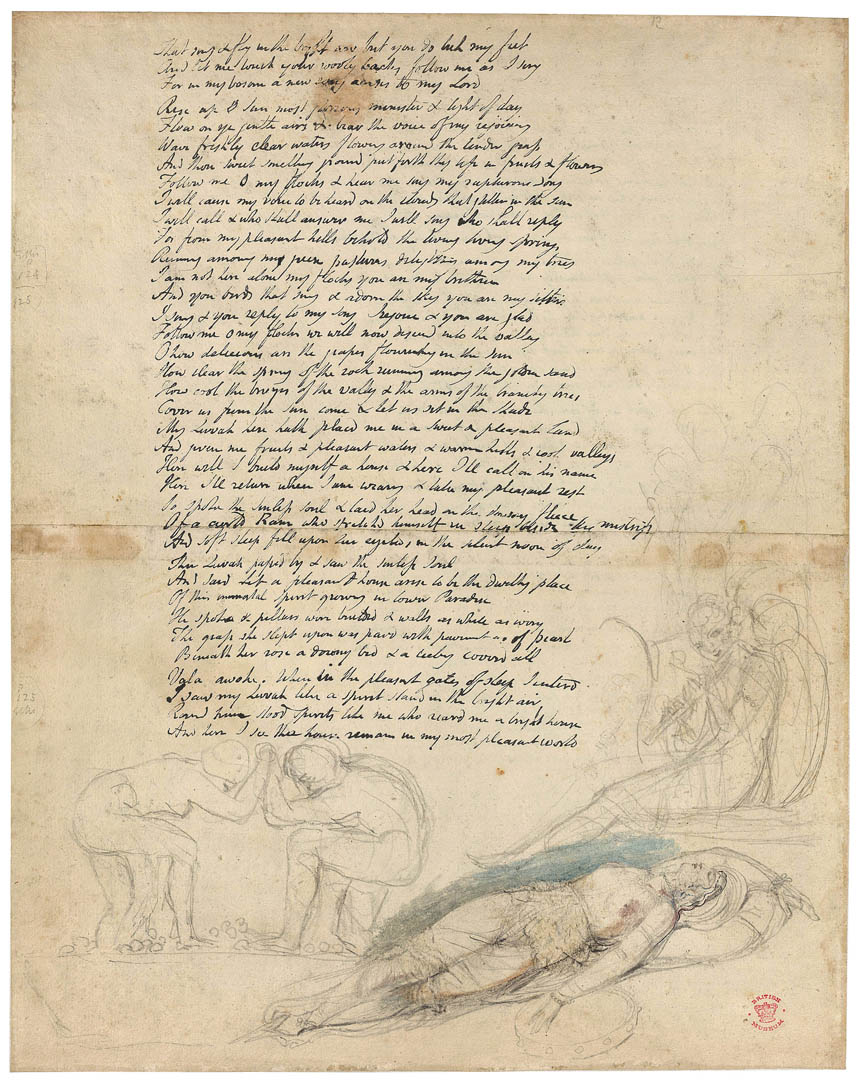 |
Blake Archive Four Zoas, Night ix, Page 128 |
Four Zoas, Night ix, Page 128, (E 397)
"Vala awoke. When in the pleasant gates of sleep I enterd
I saw my Luvah like a spirit stand in the bright air
Round him stood spirits like me who reard me a bright house
And here I see thee house remain in my most pleasant world"
In the last Night Blake let all of his feelings out in a magnificent vision of apocalypse that bears comparison with the one John wrote:
"Los his vegetable handsOutstretch'd; his right hand, branching out in fibrous strength,
Siez'd the Sun; His left hand, like dark roots, cover'd the Moon,
And tore them down, cracking the heavens across from immense to immense.
Then fell the fires of Eternity with loud and shrill
Sound of Loud Trumpet thundering along from heaven to heaven
A mighty sound articulate Awake ye dead & come To judgment from the four winds Awake & Come away"
(Four Zoas, Night ix, E 386)
And on and on it goes, much too imposing to describe in this short review. But two things will be said:
First, Blake draws on John's Apocalypse as he already has in Night viii. The strangest book in the Bible, utterly incomprehensible to the literal mind, has much to offer to the trained imagination. To read the end of 4Z with complete attention gives one a purchase on Blake's great source; Revelation begins to come alive in an exciting new way.Blake's epic ends with the eternal man awake, his four Zoas back in union, each carrying out his appointed function in the harmonious consummation of the Age. In the last harvest Urizen reaps, Tharmas threshes, Luvah tramples out the vineyard and Urthona bakes the bread.
Night ix contains much magnificent poetry. A few lines near the end will provide an appropriate end to this all too inadequate description of Blake's great poem:"The Sun has left his blackness and has found a fresher morning,
... He walks upon the Eternal Mountains, raising his heavenly voice,
The Sun arises from his dewey bed, and the fresh airs
No comments:
Post a Comment